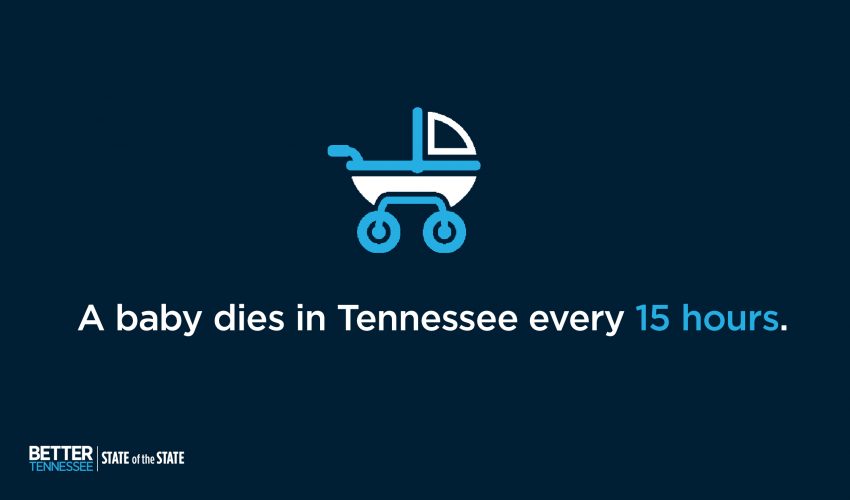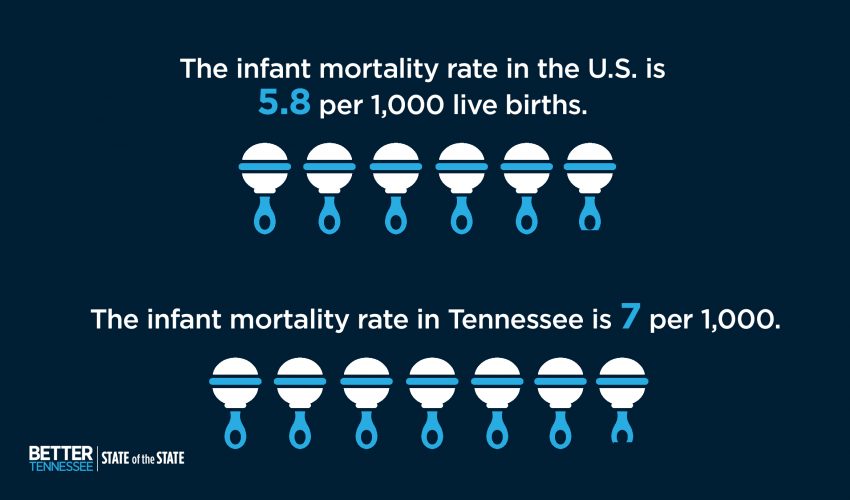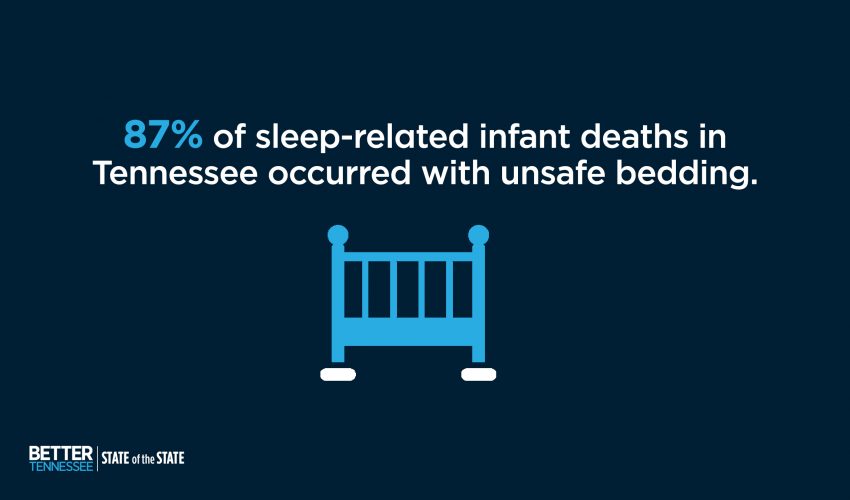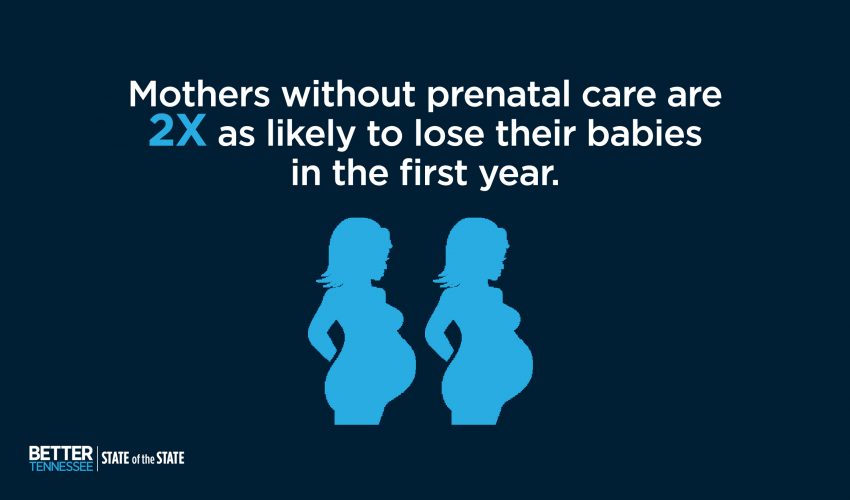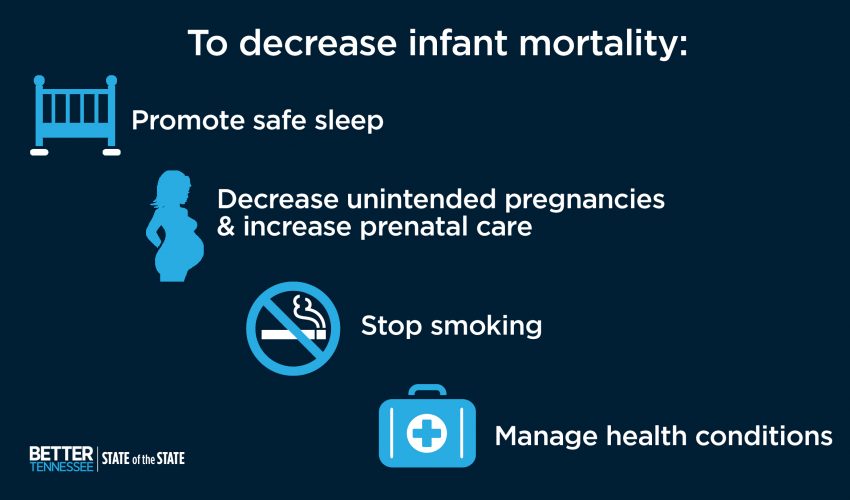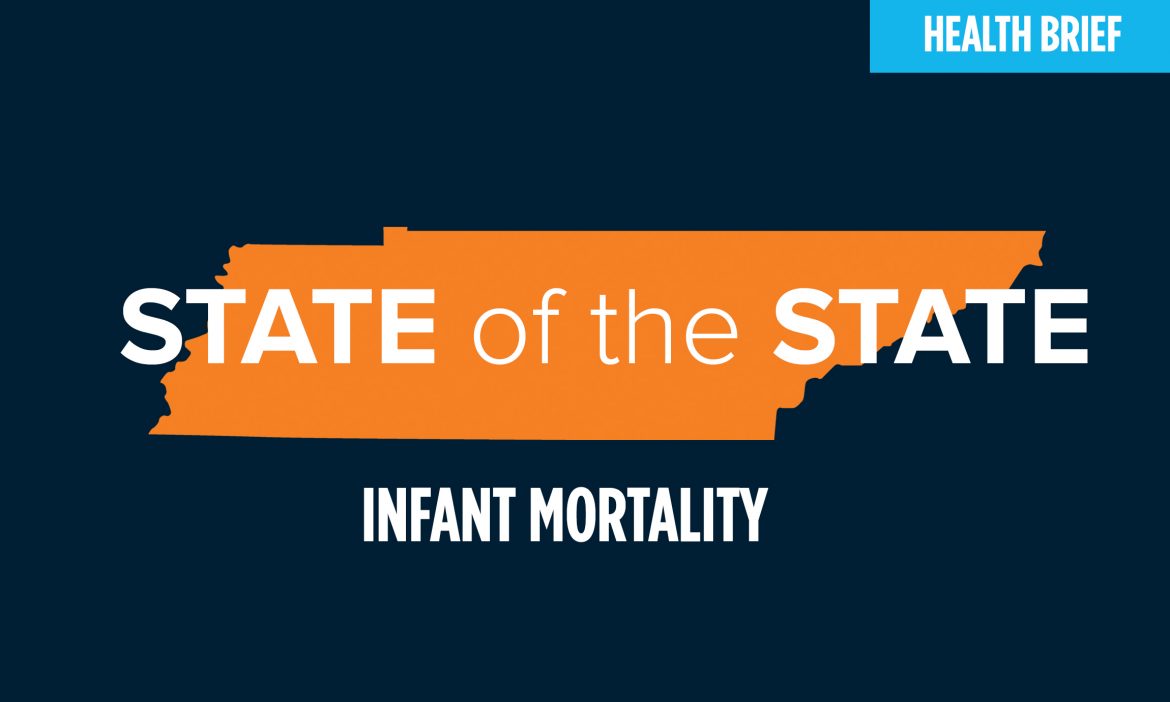Updated Sept. 8, 2017
Health briefs offer quick but comprehensive information about some of the biggest health challenges Tennessee is facing.
Scroll down to read all about infant mortality in our state or jump to a specific section:
A baby dies in Tennessee every 15 hours.
Infant mortality refers to any baby who dies before his or her first birthday.
The infant mortality rate is the number of children out of every 1,000 live births who die before turning one.
Because the survival of babies is indicative of the health of populations as a whole, infant mortality rate is often used as a gauge of the well-being of a society.
How common is infant mortality?
In the U.S.
- The infant mortality rate in the U.S. is 5.8 per 1,000 live births.
- That infant mortality rate in the U.S. is comparable to the rate in developing countries like Bosnia, Chile and Cuba.
In Tennessee
In 2015, 91.7% of infant deaths in Tennessee occurred in the first 6 months of a baby’s life.
- The infant mortality rate in Tennessee is 7 per 1,000 live births.
- The highest rate of infant mortality in Tennessee is 15.2 in the Jackson-Madison metro region.
- Shelby County has the second highest infant mortality rate in Tennessee at 8.2.
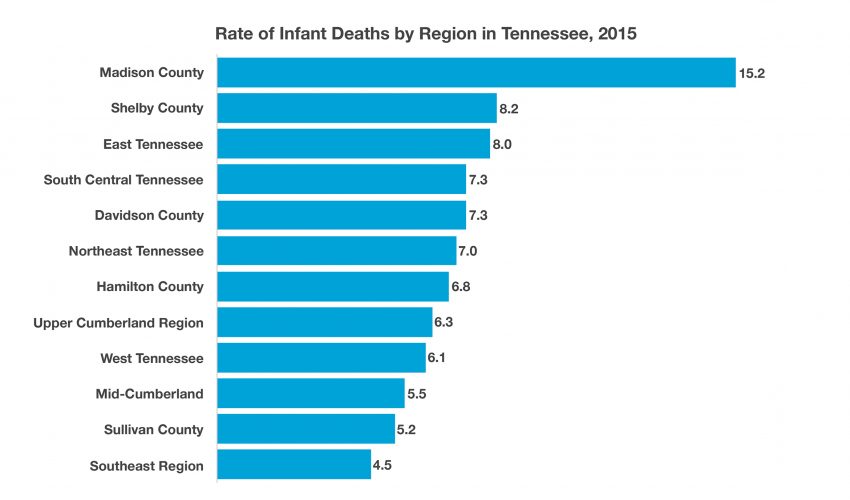
What causes infant mortality?
U.S.
According to the CDC, the most common reasons babies die within the first year of life are:
- Birth defects
- Preterm birth (before 37 weeks)
- Low birth weight (less than 5 lbs., 8 oz.)
- Pregnancy complications
- SUID — Sudden Unexplained Infant Deaths (SUID)
- Injuries (ex. suffocation)
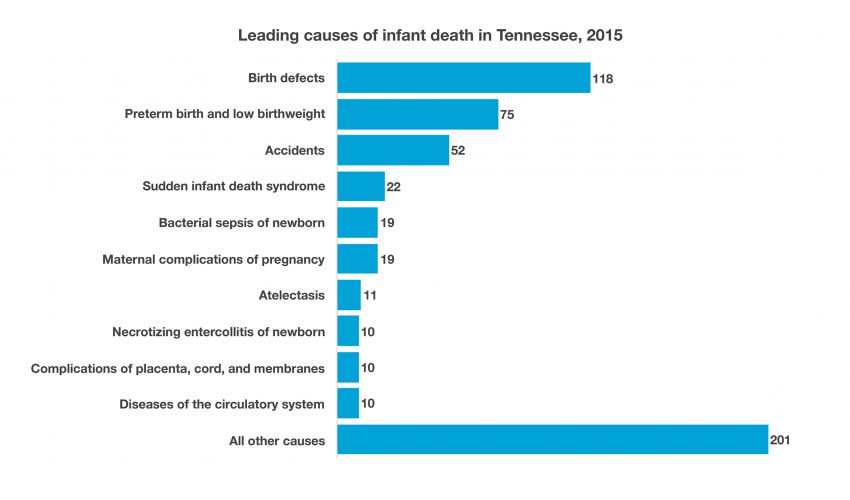
In Tennessee
Birth defects were the leading cause of infant death in Tennessee in 2015.The majority (90.2%) of accidental infant deaths in Tennessee were caused by suffocation and strangulation , followed distantly by motor vehicle accidents (7.8%). [2015]
Sudden Unexplained Infant Deaths (SUID)
SUID is the death of an infant before age 1 that occurs suddenly and unexpectedly, and whose cause of death is not immediately obvious before investigation.
Sudden Unexplained Infant Deaths (SUID) account for 3,700 deaths per year in the U.S.
African-American and Native American infants are at a higher risk.
Sleep-related deaths
Many deaths that used to be classified as SUID are now known to be sleep-related.
Although cause of death in many children can’t be explained, most occur while the infant is sleeping in an unsafe sleep environment.
Nearly 2/3 of suffocation and strangulation deaths in Tennessee occurred in bed as a result of bed linens, pillows or someone’s body.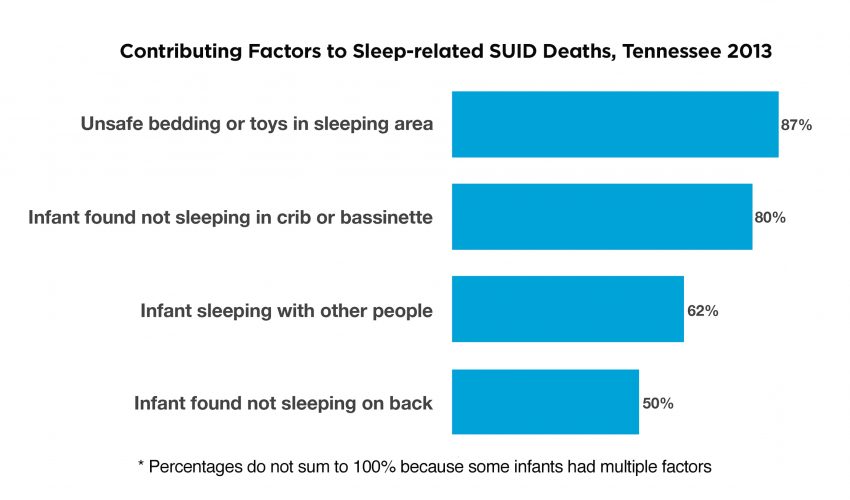
Prenatal care
Mothers without prenatal care are 2X as likely to lose their babies in the first year.
Only 67% of women in Tennessee get prenatal care in their first trimester. Only 50% of African-American women do.
15% of women in Tennessee smoke during pregnancy.
In Tennessee, a group of teens decided to take on infant mortality and learned about themselves in the process. Click here to read their story.
What are the risk factors?
- Socioeconomic status
- Sleep habits of the baby
- The mother’s:
- Age
- Prenatal care
- Smoking
- Health
- Lack of information
- Generational misinformation (ex. grandparents passing down unhealthy habits)
What can help prevent infant mortality?
- Promote safe sleep
- Increase prenatal care
- Stop smoking during pregnancy
- Manage any current health conditions before pregnancy
- Decrease unintended pregnancies

Click here to read how Maya Thirkill, the 16-year-old leader of IMPACT, teaches all kinds of groups how to combat infant mortality.
How is BlueCross addressing infant mortality?
The BlueCross BlueShield of Tennessee Health Foundation has contributed more than $9.8 million to bring at-risk babies into the world healthy and strong, to reduce pre-term births and to improve the health of children and their mothers.
BlueCross has:
- Awarded IMPACT — the “Infant Mortality Public Awareness Campaign for Tennessee” — a two-year grant of $141,116. IMPACT is a teen-led education program about the infant mortality in Hamilton County.
- Given STORC — Solutions to Obstetrics in Rural Counties telemedicine program — a grant of $600,000 over the next three years.
- Supported Chattanooga’s Baby University, which offers classes and in-home visits on nutrition, language skills and discipline to parents of children up to two years old. BlueCross donated $75,000.
- Donated $6.2 million to The Blues Project, a collaborative effort with researchers at the University of Tennessee Health Science Center to impact the high infant mortality rate in Memphis.
- Awarded $2.5 million to Better Birth Outcomes, a Vanderbilt University research-based program to improve the gestational age of newborns carried by at-risk women.
INFOGRAPHICS
